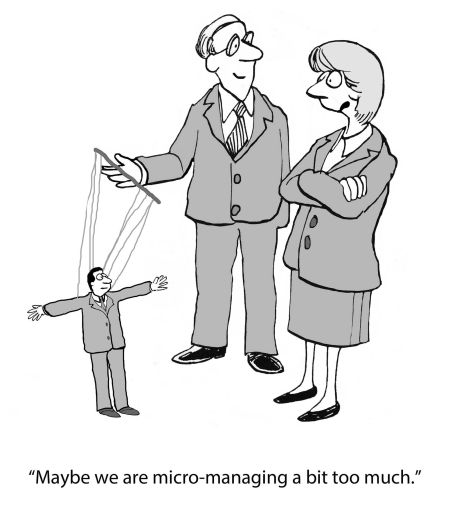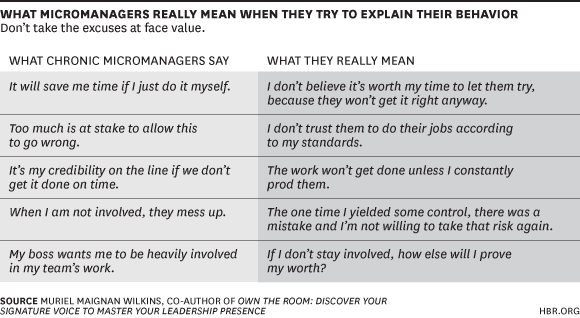We have all heard the saying, “One bad apple can spoil the bunch”. While that is literally is a true statement, today I am talking about it figuratively in the work place. Negative behavior is much stronger and carries longer lasting effects than any positive behavior in one’s environment. The University of Washington executed a study on this very topic finding that several positive employees can’t change the mood created by one negative teammate.
When the overall vibe of the office trickles down negatively from a team leader in a management role it directly affects your department, organization and overall wellbeing of your other staff members. If not addressed your team will develop decreased job satisfaction and your retention rate will skyrocket. According to Forbes, mental health issues and sleep problems come hand-in-hand when working for a “Bad Apple”. In addition, Payscale.com reported bad managers are the #1 reason people leave their jobs.
There are many characteristics of a “Bad Apple" Boss however two types tend to stick out the most. They are the Micro Managers and the Narcissists. While we can’t come up with devious plans to kidnap or hurt them like in the comedy “Horrible Bosses” with Jennifer Aniston and Jason Bateman <insert chuckle> we must recognize them so we can deal with them appropriately.
"Once again I saved the day - without me they’re nothing!” ― Anonymous Narcissist Manager
Psychology Today suggests looking for these signs to determine if you are working under a Narcissist-
- Spotlight Hoarder – Like to Hear Themselves Talk: They love to be the center of attention by dominating meetings, presentations, phone conferences and email. Quick to remind people of their accomplishments and make themselves as powerful and influential as possible.
- Sensitive to Criticism. Blame Others for Failings: Negative feedback, even when justified does not come lightly. Responses include anger, pretend indifference and excuses.
- Name and Status Dropper: They will be sure to remind people of who they know and what projects they have worked on. Some tend to be in your face with constant references and overdo it.
- Negative and Toxic Emotions: Some enjoy spreading and arousing negative emotions to gain attention, feel powerful and keep others insecure and off balance. They are easily upset at any real or perceived slights or inattentiveness.

A Micro Manager is a boss or manager who gives excessive supervision to employees. The Micro Manager, rather than telling an employee what task needs to be accomplished and by when, will watch the employee's actions closely and provide rapid criticism if the manager thinks it's necessary.
Harvard Business Review says to look for these signs of a Micro Manager:
- They are never quite satisfied with deliverables.
- They often feel frustrated because they would’ve gone about the task differently.
- Micro Managers laser in on the details and take great pride and /or pain in making corrections.
- Constantly want to know where all team members are and what they’re working on.
- Frequent updates on where things stand.
- You are directed to have them cc’d on emails that don’t appear necessary.
If you know me well I have probably asked you what is the reason behind the reason at some point in our relationship. It is relatable to so many situations in our personal and professional lives. Micro Managers reasoning can vary. Perhaps one is due to concerns of not being connected to their team, they could have general neurotic tendencies or maybe they just don’t have enough work themselves. The below chart by Muriel Maignan-Wilkins via the Harvard Business Review helps give some insight.

Now that you have recognized the traits of your “Bad Apple”, what do you do with that information? If you're a business owner or upper management and these traits sounds familiar you must pay attention and address the situation immediately. Perhaps a leadership coach may be in order or a performance review with disciplinary action is needed. If your “Bad Apple” is resistant to change or help, you may have to ultimately decide to terminate. Regardless, inaction will cause you more harm than good. Remember the #1 reason people leave a job is due to a “Bad Apple”. Employees share their displeasure in many forms including word of mouth and social media, ignoring this rotten apple may cause damage and cost you money in the form of lost productivity, diminished employee morale, recruitment difficulties, brand management and retention rates, just to name a few.
If you work for an organization that ignores that “Bad Apple” or refuses to address the issue… call us!!! We'lll find you a "new orchard"!!
"Some people try to be tall by cutting off the heads of others.” — Paramhansa Yogananda
If you work for an organization that ignores that “Bad Apple” or refuses to address the issue… call us!!! We'lll find you a "new orchard"!! ![]()
